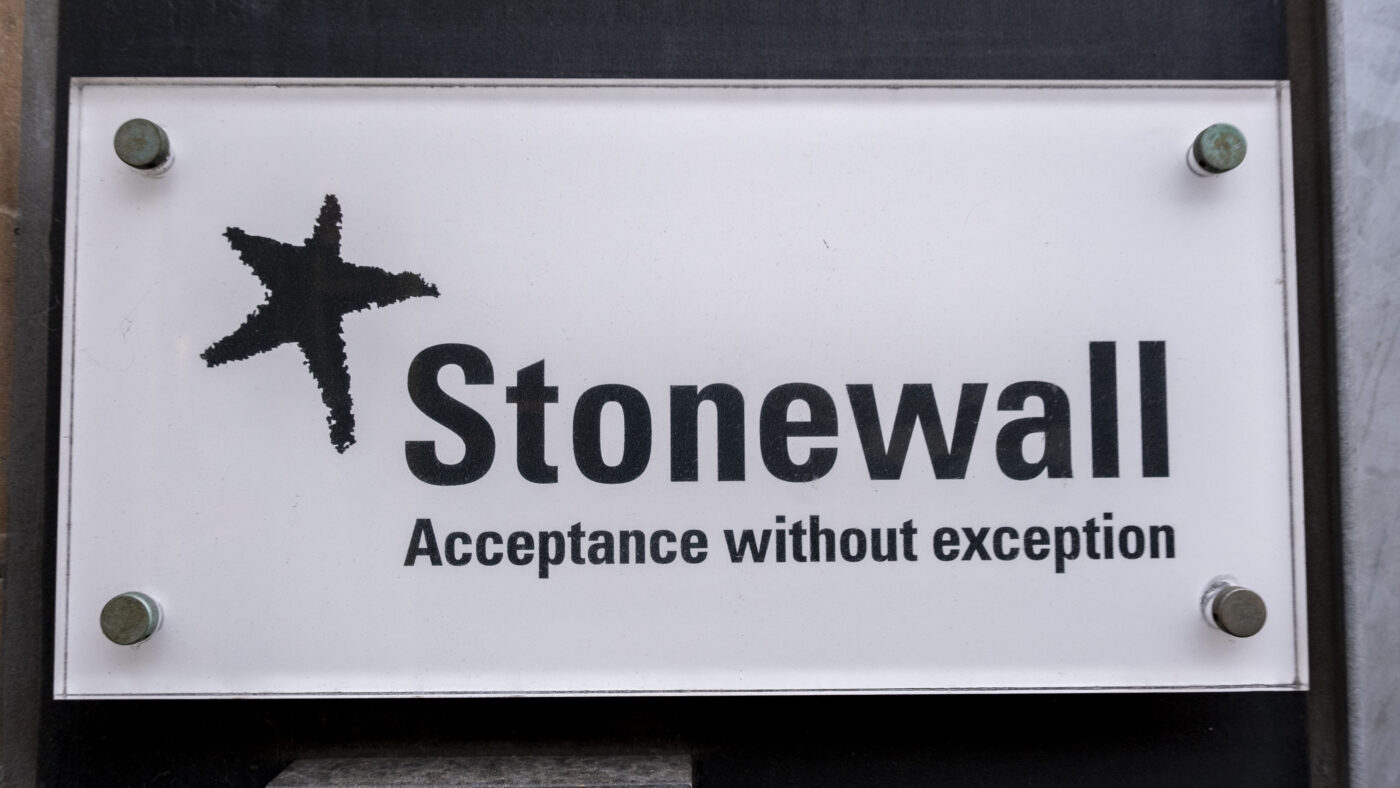The Equality and Human Rights Commission represents an unsung success of this government. Set up in 2006 by Tony Blair as an umbrella super-agency to promote and enforce human rights and non-discrimination, by 2020 it had become, in effect, a progressive pressure-group led by a self-perpetuating leftism drawn from the genteel quangocracy. In that year, however, Liz Truss, then Women and Equalities Minister, riled the establishment by shaking it up, appointing four new Commissioners who did not come from that class, and later a new Chair, Baroness Falkner, a woman of impeccably balanced liberal views and independent mind, who does not suffer fools or grifters gladly.
The new moderate EHRC is, however, now under regular attack from progressives determined to regain control of it. The latest assault comes from Stonewall, once a respectable gay rights organisation, but now a tiresomely shrill trans activist pressure group. This is an attack that can be fought off, but the government needs to keep a cool head.
Stonewall’s spat with the EHRC arose in April this year, over women-only spaces and the issue of whether a person who self-declared as female had a right to be admitted to them. Having weighed submissions from all sides, including women’s organisations that wished to keep such spaces free from biological males, the EHRC recommended amending the sex discrimination legislation to make it clear that sex meant biological sex rather than chosen gender. In other words, the mere fact that you said you were a woman (or a man) should not guarantee you a legal right to be treated by all and sundry as if you were. This recommendation was accepted by the government. Stonewall, an organisation that brooks no dissent from its own different and very dirigiste views, was livid. Finding no joy at home, six months ago it attempted to internationalise the dispute through the UN.
The UN, as part of its human rights efforts, encourages members to set up national equality and human rights organisations like the EHRC. In addition it sponsors an organisation known as GANHRI, which categorises these institutions according to such matters as independence, funding and preparedness to engage with international bodies. Those who pass the test get what is called ‘A status’, which allows them full participation in UN human rights bodies – those who don’t are relegated to ‘B status’ and get, in effect, observer participation only. The EHRC currently has A status.
It is this system that Stonewall has weaponised. To bounce the government into neutralising its reforms to the EHRC, it wrote a letter to the UN in May, co-signed by a number of like-minded organisations, demanding that the EHRC be demoted to B status because it was not ‘functioning in a pluralistic, independent and effective manner’. On Monday it was reported that in response to this letter GANHRI had instituted a ‘special review’ of the matter. What the result will be is anyone’s guess: but in a politicised environment like the UN, it cannot be ruled out that the decision will go against it.
What are we to make of this? An obvious point is that it shows Stonewall and its allies in their true light. This is, put bluntly, an attempt by a pressure group with no serious popular support here to bypass democratic argument and use dirty tricks to nobble a UK statutory agency in its own interest. Stonewall is essentially lobbying unelected UN-connected apparatchiks to interfere in our internal affairs by telling its government to strong-arm the EHRC into doing their bidding whatever voters in this country may think. The idea that this is in any way concerned with the independence of the EHRC is laughable. Stonewall’s complaint is precisely that in the matter of women’s spaces and trans rights the EHRC did act independently – and contrary to Stonewall’s position – and that it needs to be prevented from ever having the temerity to do so in future.
And the government? It needs to keep its cool here, and make clear that whatever GANHRI says it stands by the EHRC chair. True, for some people in this country being in the forefront of the fight for human rights is oddly totemic. Indeed, some newspapers may use hyperbole here – even the Telegraph referred to Britain facing a ‘UN blacklist’. But standing back, it’s difficult to see that it would be any big deal even if the EHRC did lose its A status in Geneva. (In Europe, Belgium, Hungary and Slovakia don’t have any A status organisations, and nobody inside or outside those countries seems particularly fazed by the fact.) Few people in this country have ever heard of GANHRI, and yet fewer know or care about its view of the EHRC: by contrast, a good deal more, one suspects, heaved a quiet sigh of relief when the EHRC declined to be browbeaten by Stonewall into accepting its view. As far as the government is concerned, some might even say that the loss of the ability to address the UN human rights bodies would amount to a relief from tedium.
In short, on this matter Rishi should sit tight and wait for the UN to pronounce, without being too worried about the outcome. A decision against him will do no enormous harm, and might even do some good; meanwhile he can afford to say that at the moment he, and the UK, have more important fish to fry.
Click here to subscribe to our daily briefing – the best pieces from CapX and across the web.
CapX depends on the generosity of its readers. If you value what we do, please consider making a donation.


